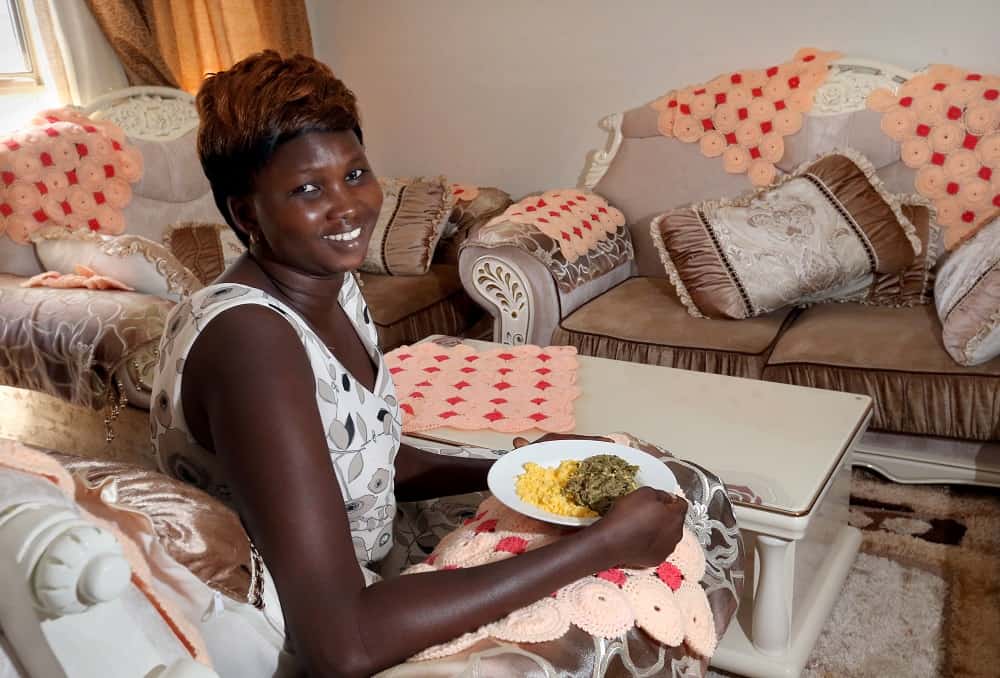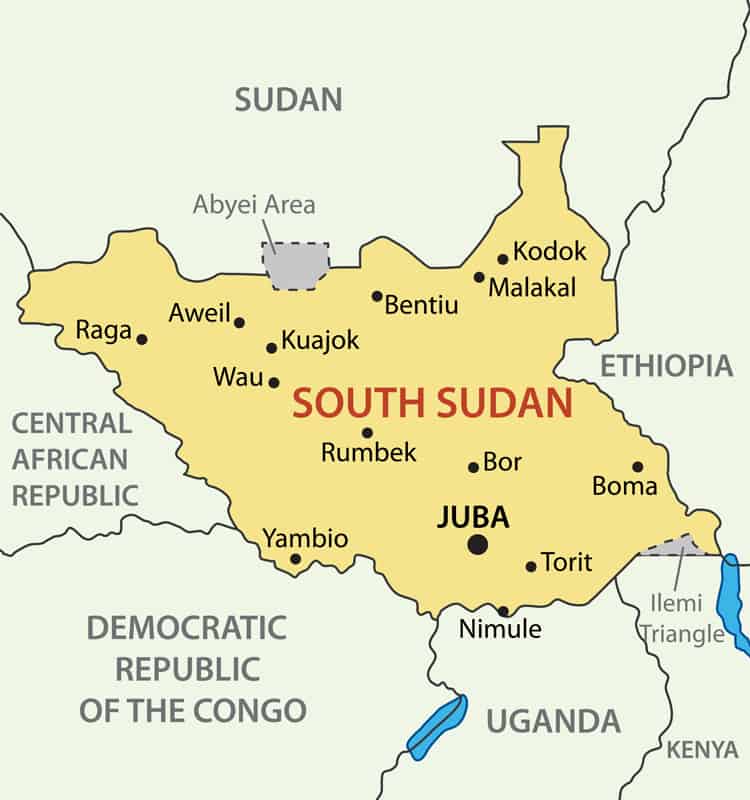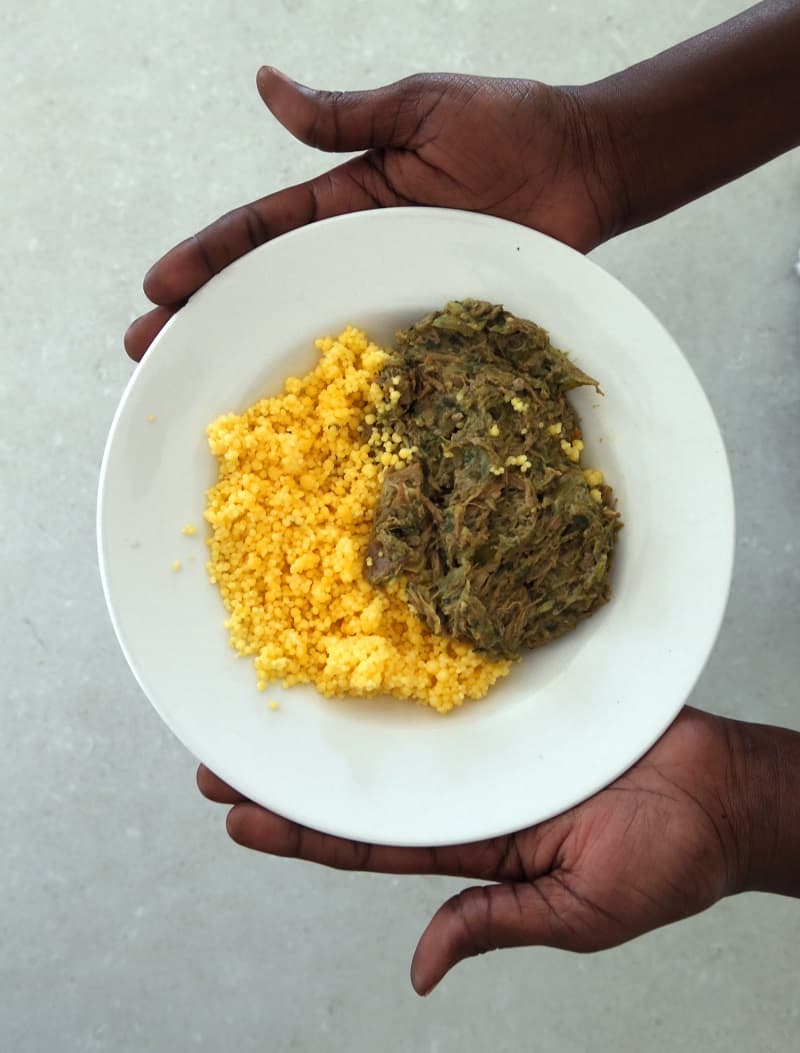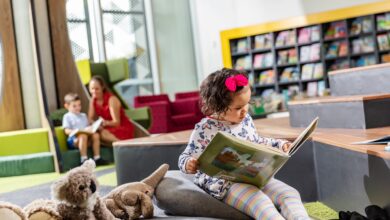
Most of us have a favourite dish or meal from our childhood. Something that was laboured over by our mother, father or grandparent.
When I ask Rebecca Deng her favourite meal from her childhood, she chuckles.
“No. No favourite dish, we were just surviving. If you find food you are lucky,” she says.
“Any food you find, you eat, so there are no favourites, just something to feed your tummy.”
When Rebecca was only five years old, she started walking.
Along with her huge family and several others, they left their village in South Sudan.
For two years she walked from refugee camp to refugee camp until they reached the border of Kenya. That was in 1994.
At this point the family was split.
Being the youngest of five siblings, Rebecca stayed with her father and sister at the border refugee camp.
Her mother continued with the three older children into Kenya where they could get an education.
“The safest place is on the border in the refugee camp,” Rebecca explains.
Food was scarce even in the camps.
“There are periods of time where you are hungry. If you are living that life, your tummy will get used to it. When there is no food you survive. Survival is top (priority),”.
Her time in the refugee camps taught Rebecca to be creative in the preparation of food.
“You can use your mind and cook in the way that you can see,” she said.
“We cook in a traditional way, lots of soup sometimes with vegetable and sometimes meat, but not very much.”
“On the border I learned a lot of things. During the day I was looking after my daddy’s sheep,” she said.
“I would do that on my own. We had about 100 in our flock, you follow them while they are grassing. When you see the sun going down you know you can go home.
“I really enjoyed this time. When you are young everything you do is fun. Sometimes other children would come along. We made sure we grassed them properly so we could get to drink some fresh milk in the afternoon.”
In 1997, Rebecca was old enough to receive an education, the rest of the family moved to a refugee camp in Kenya where her family was reunited.
By the time Rebecca was an adult her family was repatriated to South Sudan. Her parents chose a partner for her to marry. Afterwards, Daniel and Rebecca applied to the UN and they were relocated to Australia.
“The most different thing that I noticed straight away is that it is more safe here than in Africa,” Rebecca said.
“Everywhere in Sudan and Kenya, we are struggling. Here there is no mass struggling. If you don’t work you can get support. If you work, your life is better. But in Africa people are mostly struggling for life.”
Rebecca has four children of her own and she happily tells me they have never been hungry.
She also volunteers at the Redbank Plains Community Centre on the Nourish Project which sees her on the other side of the food line, helping hand out food parcels. Rebecca hopes it will also help her to get a job.
Living in Redbank Plains, Rebecca enjoys being part of a larger African community and the community as a whole.

South Sudan Fact File
The world’s newest country gained independence from Sudan on 9 July 2011
South Sudan is one of the most diverse countries in Africa with over 60 different ethnic groups
7.5 – 10 million population
Languages spoken are English, Arabic, Juba Arabic and Dinka
Religions are traditional religions and Christianity
It is landlocked in eastern Arfica by surrounding countries Sudan, Ethiopia, Kenya, Uganda, Democratic Republic of the Congo, Central African Republic
The capital is Juba
The Dinka is the largest of the 200 ethnic groups that call South Sudan home. Other tribes include the Shilluk, Nuer, Acholi, and Lotuhu
“Living here at Redbank Plains if I ever want to connect with other Africans I can visit a neighbour or I can go to a friend’s place.
“When we were at Caboolture, my son used to ask me ‘why am I black? I am the only black one at school’. I would say ‘it’s your colour, it’s nature’ but since we have moved to Ipswich there are more children that look like him at school so he doesn’t complain about his colour anymore.”
Rebecca thinks sharing her culture is the key to understanding each other better.
“Most Sudanese you meet will be happy to share their culture. It’s good for people to ask questions. Every culture has good and bad, we are all different,” she said.
“If you understand someone’s culture, you will know that if someone does something bad, you should not blame that on the whole culture. There are good and bad people from every culture.”

South Sudan Recipe
This is a traditional Dinka dish from South Sudan. It is soft and used in place of rice or cous cous. The soup or stew is made with meat and they are eaten together.
“My mum cooked Akou for me in South Sudan and I learned this back home and I still cook it here in Australia,” Rebecca Deng said.
½ cup of cornflour mixed with water to form a paste. It is left to sit and ferment.
Place a half a leg of lamb into boiling water to cook. Once it is tender take the bone out. Then put spinach into the soupy lamb mixture and stir.
Go back to the cornflour mixture which will have risen and will be soft. Add a cup of corn and stir using a folk to separate into ‘cous cous’ like balls.
Serve together.

